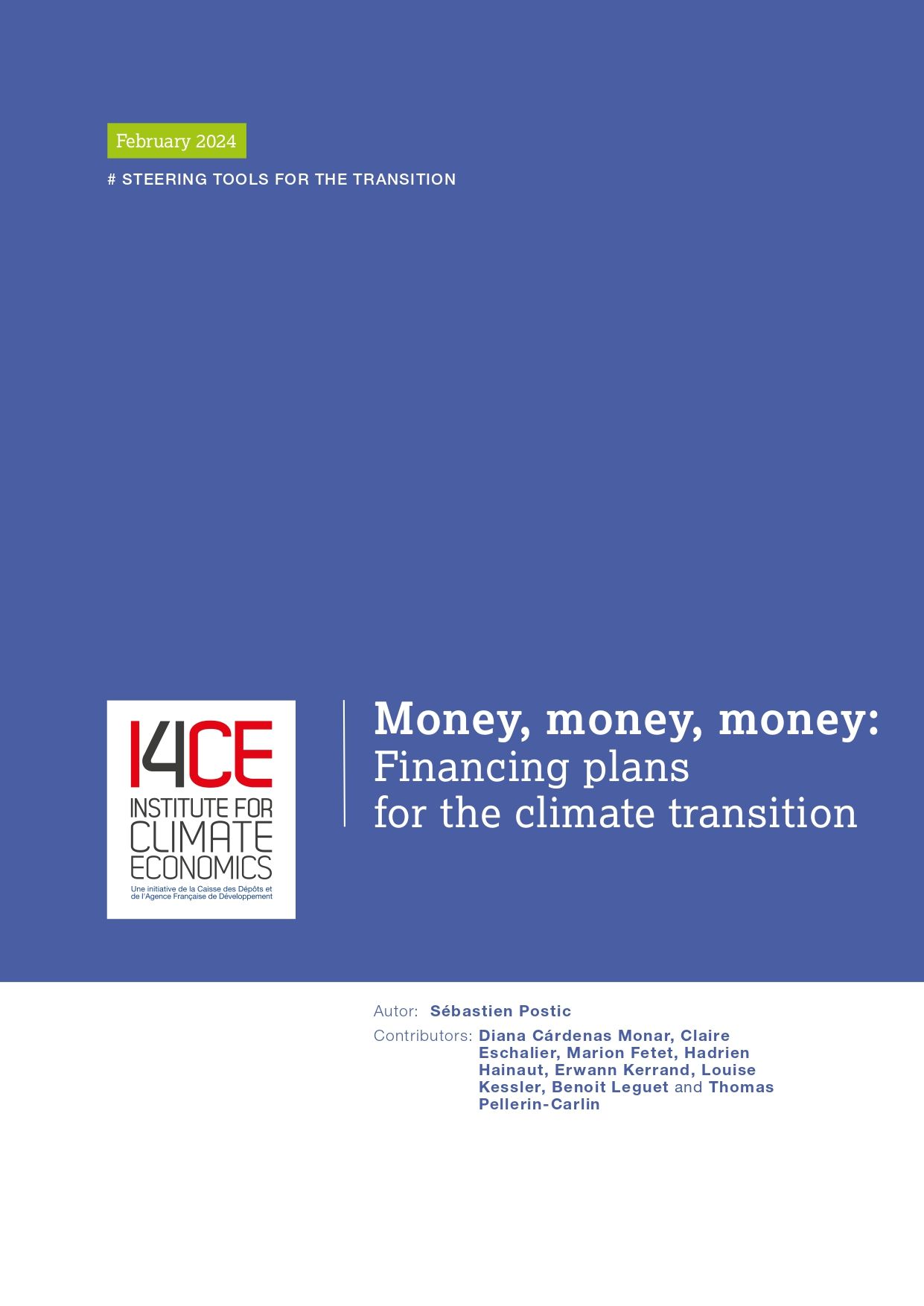Money, money, money: Financing plans for the climate transition
France should publish mid-year its first multi-annual strategy for financing the ecological transition. This is a long way from the first 2015 climate strategy, which barely touched funding aspects. And it is good news. We at I4CE believe that such plans are essential tools to support the transition to low-emission, climate-resilient economies. Credible, multi-year public spending targets help to embark the private sector and the funders of public action (debt holders, international donors) in the transition, and redirect financial flows as demanded by the Paris Agreement. Comprehensive financing plans also avoid simplistic approaches based on case-by-case project appraisal on the basis of limited cost-benefit considerations, which can ultimately result in significant additional costs.
We believe this is the right time to discuss such plans.
Beyond France, international climate discussions have taken a resolute turn towards the financing aspects of the transition. UN’s Simon Stiell reminded us last week that USD 2, 400 billion are needed every year, starting now, to finance climate action in the global South (excluding China). The reform of the global financial architecture, initiated in 2022, is underway. So is the re-negotiation of the target for climate finance flows from developed to developing countries, currently standing at USD 100 billion per year. To come up with meaningful solutions, these two processes will need to rely on tangible information on the needs and priorities of recipient countries. Brazil, which is hosting this year’s G20 and next year’s COP30, has made climate finance one of its priorities. At the EU level, ambitious commitments such as the freshly out “90% emissions reduction by 2040” still lack predictable financial support over the next 5 to 10 years. The NextGenerationEU recovery plan, which will phase out by 2026, leaves a void in the EU climate finance policy, and the fund-by-fund approach lacks the overall consistency which is needed to provide a real answer to the United States’ Inflation Reduction Act.
Within France, the subnational context is ripe for working on medium-term climate-sensitive financing plans at the local government level. We now have a figure for subnational public climate investment needs: around €12 billion annually. Roughly a third of France’s overall climate investment gap, and a doubling of the current investment pace. That is, leaving adaptation out. The national discussion on ecological planning is now being taken to the local level through regional COPs, under the Prime Minister’s authority. France is once again opening up the debate on decentralization and the roles, responsibilities and resources of its local authorities. Ecological planning at the local level is one of the unavoidable topics of such a discussion.
In 2024 and 2025, I4CE will keep supporting the emergence of multi-annual strategies for funding the transition at the international, European, national and subnational levels. This note summarizes why we strongly believe such strategies matter, presents our work so far in supporting their shaping and making, and more importantly, what is coming up next.

